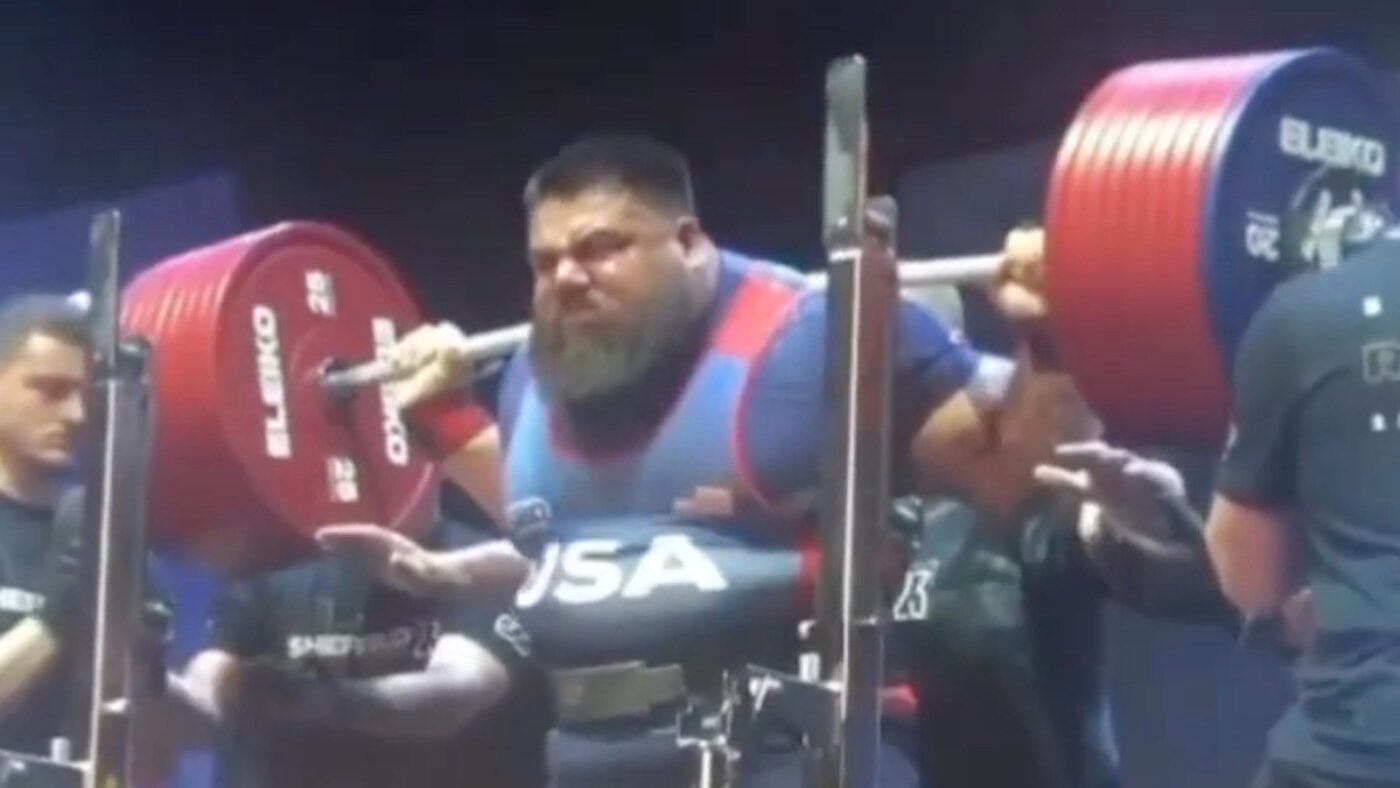Health & Fitness
World-Record Setting Powerlifter Jesus Olivares Shares Four Technique Tips to Squat More Weight
He is a 1,000-plus pound squatter after all.
Many lifters that squat in the gym don’t simply want to “train their legs,” they want to get stronger and move serious weight, as well. Jesus Olivares knows a thing or two about squatting a lot of weight. As a matter of fact, he knows at least three things.
Not only has Olivares squatted over 1,000 pounds three times in powerlifting competition — always lifting raw, breaking the barrier twice in the same meet — but he’s willing to share his knowledge with his 138,000 plus followers on Instagram. In a recent post, he shared a total of four tips that he applies to every squat he performs in training or competition.
Find Your Best “Shelf”
When Olivares referred to the shelf, he’s talking about where the bar would be sitting on his upper back and shoulders.
“The “shelf” is the first point of contact between you and the bar. It’s going to determine a lot such as bar placement and bar path … Whatever you decide, I urge [you] to find the perfect combo between stability and comfort, sometimes you can’t have both. So pick whichever you prioritize!”
He went on to talk about three positions that the barbell could be placed on the shoulders — low, mid, and high. Olivares could be considered a low-bar squatter based on his personal lifting style. He explained that the goal should be to flex your back around that placement for comfort and stability.
He also emphasized hand placement so the bar can be kept in place throughout the lift. The goal should be a balance between comfort and stability. You may have to compromise one to emphasize the other, according to the 120-kilogram-plus athlete who holds the All-Time World Record powerlifting total.
Have a Strong, Stable Walkout
Wasting time and energy is counterproductive when it comes to the squat. Lifting the bar from the rack, and then taking several steps to walk it out, and then trying to adjust while the weight settles can not only make the attempt harder, it could lead to injury.
Olivares advocates for a short and sweet pick and settling of the weight before going down into the hole. Take no more than four steps to get into position and make sure the bar is stable on your back.
“This is a game of efficiency and proficiency. Be patient but do not take any more time than what you need … Practice makes improvement.”
If you’re making an attempt in competition, then you don’t have much time to do this. Practicing with lighter weights in training would be a wise move.
Breathe and Brace Correctly
The squat is always associated with leg training, but it really is a full-body movement. Your legs are the primary driver, but Olivares emphasized the importance of a strong and dependable core to transfer power and improve overall technique.
“Bracing isn’t just flexing your abs but also incorporating obliques and mid/low back. The action of engaging your entire midsection is what will protect your low back while also creating the rigidity you require.”
Bonus Tip: Time Your Descent to Explode Out of the Hole
Whether you’re in the gym or on the platform, you don’t want to be under the bar any longer than necessary. Taking a long negative can show control, but it can also zap the body of energy. Olivares isn’t getting paid by the hour when he competes. Even though he wants to be in control throughout the rep, he wants to get down and up as quickly as possible so he builds tightness as he lowers into the bottom position before “blowing up” to rise out of the hold.
” … you feel your internal pressure increase as you go into the hole of the squat and at your lowest and deepest point is where you’ll feel the most pressure. It is at this point where you want to time the reversal of momentum to help you on your way up!”
Jesus Olivares — All-Time Raw Competition Bests (+120KG)
- Squat — 470 kilograms (1036.1 pounds)
- Bench — 272.5 kilograms (600.7 pounds)
- Deadlift — 410 kilograms (903.9 pounds) — IPF World Record
- Total — 1,152.5 kilograms (2,540.8 pounds) — IPF All-Time World Record
Olivares last competed in June 2023 at the 2023 IPF World Classic Powerlifting Championships, where he won the 120-plus kilogram championship with a World Record total of 1,080 kilograms (2,381 pounds), including a 455-kilogram (1,003.1-pound) squat. His personal best competition squat is 470 kilograms (1,036.1 pounds), which he achieved at the 2023 IPF Sheffield Powerlifting Championships in March. As of this writing, there is no word on when he will compete again.
Featured Image: @mega.gojira on Instagram
Source link

